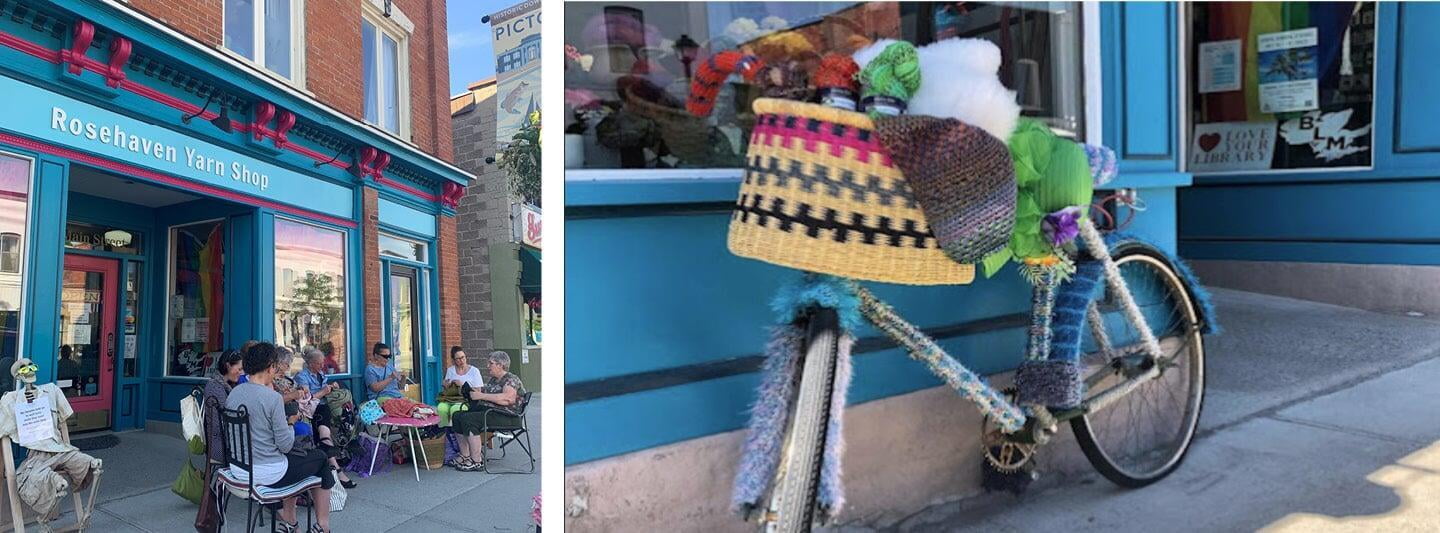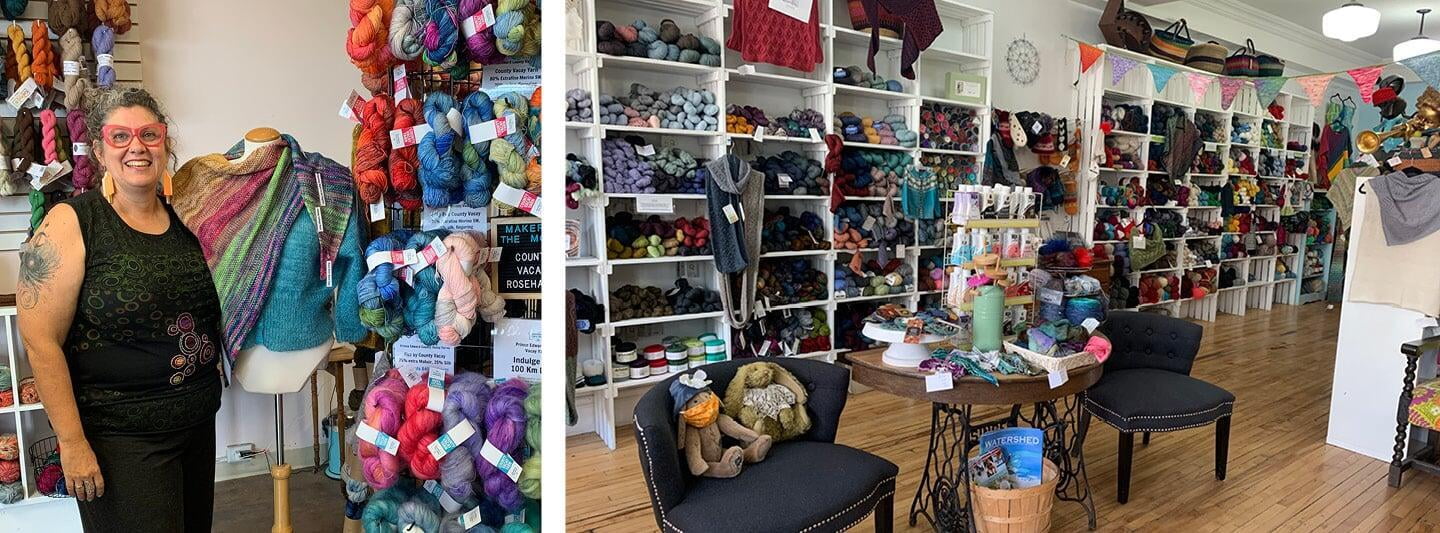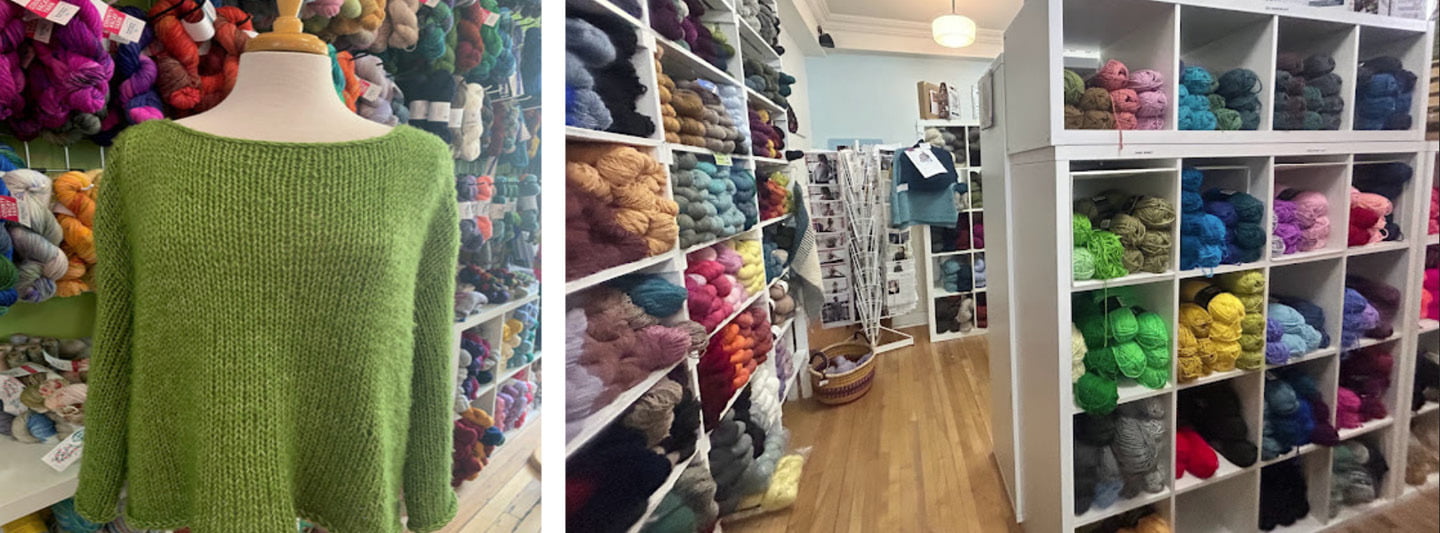Lesley Snyder, owner of the popular yarn shop in downtown Picton, Ontario, said that over the first two months of the pandemic, the public safety protocols and restrictions put in place for travel and in-person encounters hit her yarn and fabric craft supply store exceedingly hard, with an 85 per cent drop in business. Rosehaven Yarn had opened up shop on Picton’s Main Street seven year’s ago, and attracted a significant percentage of customers from out of town by building a reputation for the excellence of its product line. When these customers were discouraged from travelling, it meant a loss of feet through her door as locals were also ordered to stay home.
Snyder feared the business was financially exposed. She had to skip the six or seven trade shows that she normally attends. A corollary to that was because she had to plan her inventory well in advance, including bringing in extra product for trade shows, she had an overabundance of some product lines, which meant she had to carry far more credit card debt than she normally would, without any tangible evidence that she could sell the excess product. A timely investment from RRRF, which is backed by the Government of Canada through FedDev Ontario, made a difference. “The RRRF funding was important because during this whole thing, I never knew from week to week or even from day to day what my sales were going to be, which I was always able to anticipate for in years past. So, there was not only that uncertainty but then also the hard decisions between doing what I needed to do to make the store safe for everyone, but also still pay my rent and my hydro and the mortgage on our home and put food on the table. So, this has been a really big help when you’re already just scraping by in these tough times.”
Snyder used the funds to improve the safety of her establishment, as well as investing in increasing the overall size of the sales area and workspace for both short and long-term sustainability.
“There were so many additional things that we had to do, like the expansion of the basement, and a plexiglass cash screen and improved signage, enlarging the hand sanitizer station and putting the social distancing stickers on the floor. All of those things were not originally budgeted for, and were obviously unexpected expenses,” Snyder added. As customers returned, she had to make physical adaptations to the store itself.
“I reorganized all the shelving and added new shelving to make it easier to see and more user friendly . . . We also had to adapt our approach to dealing with customers because there’s a lot of close contact and touching of the yarns and needles and patterns as you’re trying to help them find the right products for their projects. So, we have got really good at playing the ‘hotter, warmer, colder’ game,” Snyder said. Snyder converted a floor that had been used mostly for storage into retail space, with a more inviting décor and a larger area for no-contact and socially-distanced workshops and knitting group meetings – a key component to the store’s popularity and a way Snyder has continued to build her business.
“We were able to get the funds we needed quickly, make changes to the business, and adjust to a new way of doing business during the pandemic,” she said. The result has been an increase in sales, a more understanding and appreciative customer base, colourful Main Street, and the survival of one of the most popular knitting shops in Ontario.




